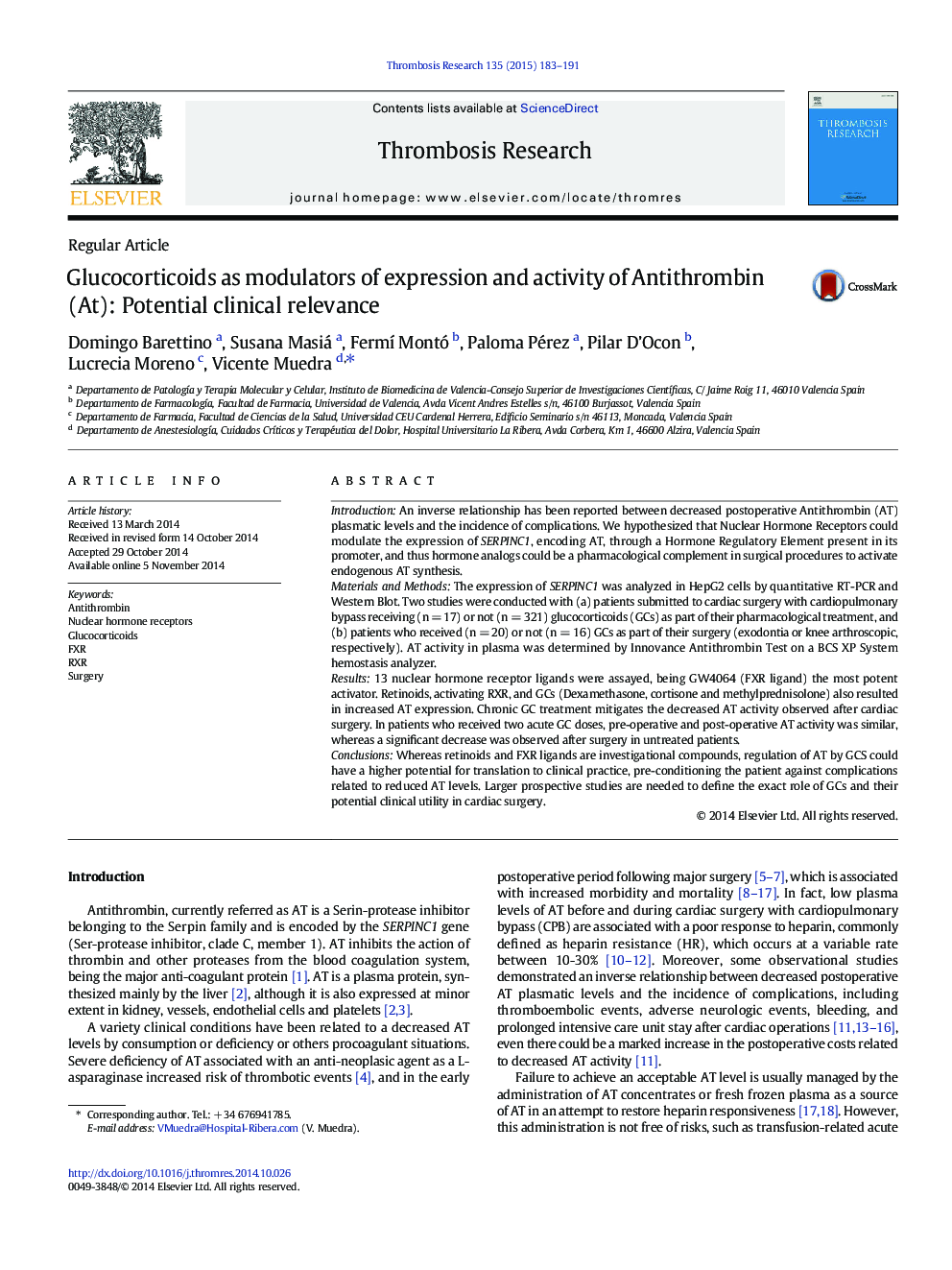| Article ID | Journal | Published Year | Pages | File Type |
|---|---|---|---|---|
| 3027125 | Thrombosis Research | 2015 | 9 Pages |
•Several compounds activating Nuclear Hormone Receptors increase the AT expression.•Retinoids and Glucocorticoids appeared to be good activators of AT expression.•Acute intravenous glucocorticoids administration mitigate the decreased AT activity.•Glucocorticoids could be therapeutic alternative regulating AT activity.
IntroductionAn inverse relationship has been reported between decreased postoperative Antithrombin (AT) plasmatic levels and the incidence of complications. We hypothesized that Nuclear Hormone Receptors could modulate the expression of SERPINC1, encoding AT, through a Hormone Regulatory Element present in its promoter, and thus hormone analogs could be a pharmacological complement in surgical procedures to activate endogenous AT synthesis.Materials and MethodsThe expression of SERPINC1 was analyzed in HepG2 cells by quantitative RT-PCR and Western Blot. Two studies were conducted with (a) patients submitted to cardiac surgery with cardiopulmonary bypass receiving (n = 17) or not (n = 321) glucocorticoids (GCs) as part of their pharmacological treatment, and (b) patients who received (n = 20) or not (n = 16) GCs as part of their surgery (exodontia or knee arthroscopic, respectively). AT activity in plasma was determined by Innovance Antithrombin Test on a BCS XP System hemostasis analyzer.Results13 nuclear hormone receptor ligands were assayed, being GW4064 (FXR ligand) the most potent activator. Retinoids, activating RXR, and GCs (Dexamethasone, cortisone and methylprednisolone) also resulted in increased AT expression. Chronic GC treatment mitigates the decreased AT activity observed after cardiac surgery. In patients who received two acute GC doses, pre-operative and post-operative AT activity was similar, whereas a significant decrease was observed after surgery in untreated patients.ConclusionsWhereas retinoids and FXR ligands are investigational compounds, regulation of AT by GCS could have a higher potential for translation to clinical practice, pre-conditioning the patient against complications related to reduced AT levels. Larger prospective studies are needed to define the exact role of GCs and their potential clinical utility in cardiac surgery.
